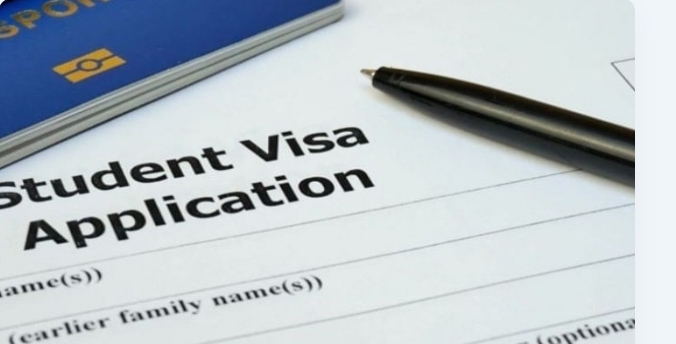However, before embarking on this exciting journey, one must navigate the intricate process of obtaining a UK visa. In this comprehensive guide, we’ll delve into the UK visa requirements for students, shedding light on the necessary steps and essential information to make your transition to studying in the UK as smooth as possible.
Understanding UK Student Visas
The UK offers various visa options for international students, but the most common one is the Tier 4 (General) student visa. This visa allows individuals from outside the European Economic Area (EEA) and Switzerland to study in the UK at an approved institution.
Key Requirements
To be eligible for a Tier 4 student visa, applicants must fulfill several requirements, including:
- Acceptance into a UK Institution: Before applying for a Tier 4 visa, you must secure an offer of admission from a licensed Tier 4 sponsor institution. This could be a university, college, or other educational provider.
- Confirmation of Acceptance for Studies (CAS): Once you’ve been offered a place at a UK institution, you’ll receive a CAS from your sponsor. The CAS contains important information about your course of study and confirms that you meet the academic requirements.
- Financial Requirements: You must demonstrate that you have enough money to cover your tuition fees and living expenses in the UK. The exact amount varies depending on your circumstances and your institution’s location.
- English Proficiency: Since most courses in the UK are taught in English, you’ll need to prove your proficiency in the language by taking an approved English language test, such as IELTS or TOEFL.
- Tuberculosis Test: Some students may be required to undergo a tuberculosis (TB) test, depending on their country of residence.
Application Process: Once you’ve gathered all the necessary documents and met the requirements, you can begin the visa application process. Here’s a step-by-step guide:
- Complete the Online Application: Start by filling out the online application form on the UK government’s official visa application website.
- Pay the Application Fee: The next step is to pay the visa application fee, which varies depending on your location and the type of visa you’re applying for.
- Biometric Information: You’ll need to schedule an appointment to provide your biometric information, including fingerprints and a photograph, at a visa application center.
- Attend an Interview (if required): In some cases, you may be asked to attend an interview as part of the visa application process.
- Wait for a Decision: After submitting your application and attending any necessary appointments, you’ll need to wait for a decision on your visa.
Tips for a Successful Application
To increase your chances of a successful visa application, consider the following tips:
- Start Early: The visa application process can take several weeks, so it’s essential to start early and allow plenty of time for processing.
- Double-Check Your Documents: Make sure you have all the required documents and that they are filled out correctly before submitting your application.
- Seek Professional Advice: If you’re unsure about any aspect of the visa application process, consider seeking advice from a qualified immigration advisor or solicitor.
- Be Honest: Always provide accurate information on your visa application, as any discrepancies could lead to delays or rejection.
Conclusion: Obtaining a UK student visa may seem daunting, but with careful planning and preparation, it’s entirely achievable. By understanding the requirements, following the application process diligently, and seeking assistance when needed, you can embark on your academic journey in the UK with confidence. So, if you’re dreaming of studying in one of the world’s most prestigious educational systems, don’t let the visa process hold you back—take the first step towards realizing your aspirations toda
Frequently Asked Questions (FAQs) related to UK student visas:
- Can I work while studying in the UK on a student visa?
- Yes, you can work part-time during term time and full-time during holidays with certain restrictions. Typically, Tier 4 (General) students are allowed to work up to 20 hours per week during term time and full-time during vacations.
- Do I need health insurance for my UK student visa?
- Yes, you’ll need to pay the immigration health surcharge (IHS) as part of your visa application. This grants you access to the UK’s National Health Service (NHS) during your stay. Additionally, some institutions may require you to have private health insurance.
- Can I extend my student visa in the UK?
- Yes, you may be eligible to extend your student visa if you’re continuing your studies or switching to a different course. You’ll need to meet certain requirements and apply before your current visa expires.
- What happens if my visa application is rejected?
- If your visa application is rejected, you’ll receive a letter explaining the reasons for the refusal. You may have the option to appeal the decision or reapply, depending on the circumstances.
- Can I bring my dependents with me on a UK student visa?
- In some cases, you may be able to bring your dependents (such as a spouse or children) with you to the UK on a Tier 4 dependent visa. However, you’ll need to demonstrate that you can support them financially and meet other requirements.
- Is there a limit on how long I can stay in the UK on a student visa?
- The length of your stay in the UK on a student visa depends on the duration of your course. Typically, Tier 4 visas are granted for the duration of your studies, plus a few additional months at the end.
- Can I travel outside the UK while on a student visa?
- Yes, you can travel outside the UK and return while holding a valid student visa. However, make sure to check the visa requirements for the countries you plan to visit and ensure that your visa will still be valid upon your return to the UK.
- What are the consequences of overstaying my visa in the UK?
- Overstaying your visa in the UK is a serious immigration offense and can lead to severe consequences, including deportation, a ban on re-entering the UK, and difficulty obtaining future visas or residency permits.
These FAQs cover some of the common queries regarding UK student visas, but if you have specific concerns or questions, it’s advisable to consult with immigration authorities or a qualified advisor for personalized guidance.


